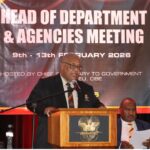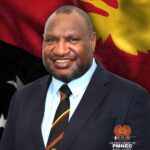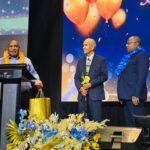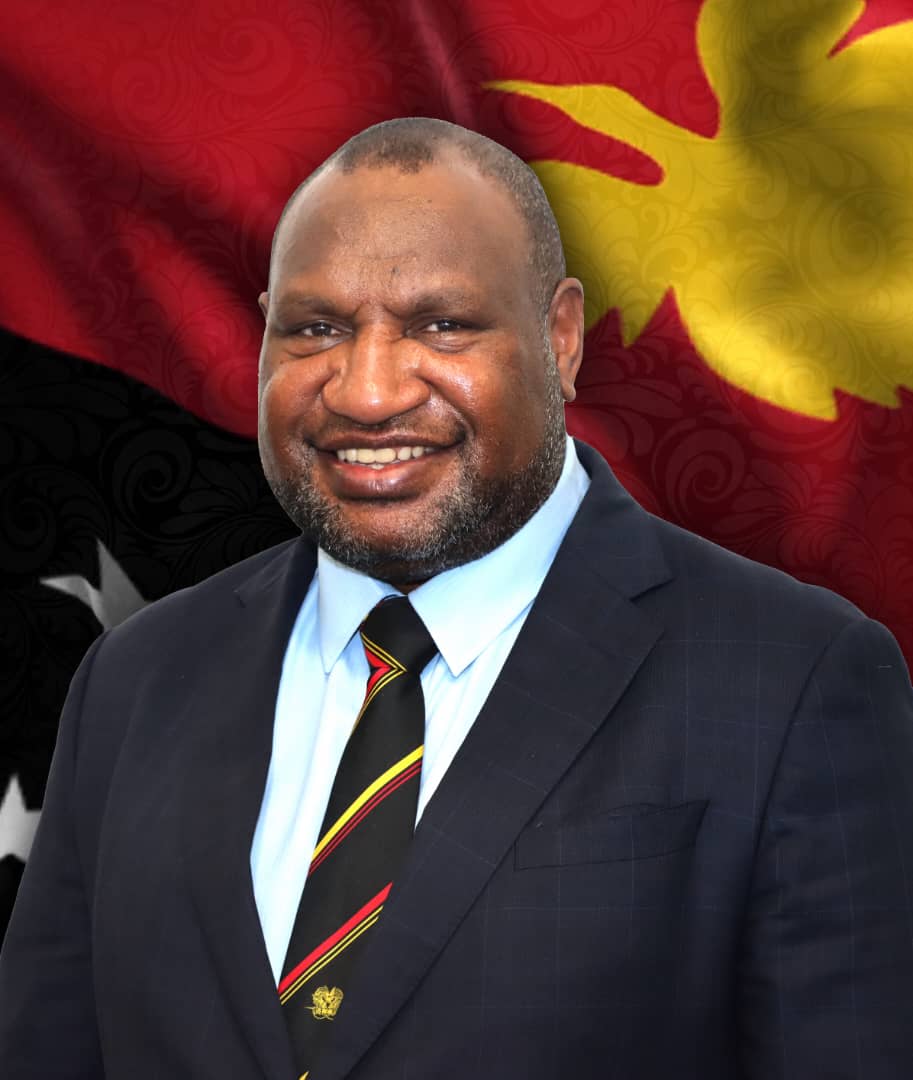Prime Minister Hon. James Marape has paid a moving tribute to the women of Papua New Guinea, describing them as the true anchors of the nation and the unsung heroines of the country’s independence struggle.
The Prime Minister began by honouring the ordinary women in every corner of the country— the mothers, sisters, and daughters whose daily labour sustains the nation.
“I honour the women in our villages who plant gardens, fetch water, and walk miles to sell produce in the markets. I honour the mothers who carry babies on their backs while working the soil. I honour the women who weave bilums, teach our children, nurse our sick, sing in our choirs, and hold our families together through prayer and perseverance. From the highlands to the islands, from towns to remote hamlets — every woman has built this nation with her hands, her heart, and her sacrifice,” Prime Minister Marape said.
He stressed that this legacy belongs to women from all walks of life.
“I acknowledge the teachers in our classrooms and the nurses in our aid posts, the women who run small businesses in our markets and the executives who lead companies. I acknowledge the women who campaign against violence, the village court magistrates, and the church mothers who keep our communities strong. I acknowledge the women farmers who feed our nation and the women academics and scientists who contribute to knowledge and progress. All of them are builders of Papua New Guinea.”
The Prime Minister reminded the nation that the independence movement itself was nurtured by such sacrifice. It did not begin in Parliament chambers, but around the humble kitchen table of Lady Elizabeth Kiki, where rice and bully beef sustained the discussions of the young nationalists who would form the Bully Beef Club.
“It was Lady Kiki, cooking in her home, who gave refuge and nourishment to the young leaders who would become the architects of our independence. Without her sacrifice and the sacrifices of countless other women, there may never have been a Pangu Pati or an independent Papua New Guinea.”
On 13 June 1967, the Bully Beef Club transformed into Pangu Pati, with founding fathers including Sir Michael Somare, Sir Albert Maori Kiki, Tony Voutas, Sir John Guise, Sir Paul Lapun, Sir Pita Lus, Sir Ebia Olewale, Sir Barry Holloway and others
“These men were giants of their time — but behind them stood women of equal strength,” the Prime Minister said.
He paid tribute to the wives, mothers, and women leaders who supported the national cause: Lady Veronica Somare, Lady Stella Chan, Lady Roselyn Morauta, Dame Carol Kidu, Dame Josephine Abaijah, Julie Soso, Delilah Gore, Rufina Peter, Kessy Sawang, Francisca Semoso, and many others.
“Each of these women carried heavy burdens. Many sacrificed careers, endured the absence of their husbands, and raised families alone while their partners dedicated themselves to the nation. Their resilience and strength are woven into the very fabric of our country’s independence.”
The Prime Minister further acknowledged women who have carried PNG’s name proudly on the world stage through sport:
• Dika Toua, the trailblazing weightlifter and first woman ever to compete in Olympic weightlifting in 2000, who carried the PNG flag with honour across multiple Olympics and Commonwealth Games.
• Geua Tau, the nation’s first Commonwealth Games gold medallist, who lifted the country’s spirits and showed the world that PNG women could be champions.
• Toea Wisil, the “Pacific Sprint Queen”, who has flown the PNG flag in stadiums across the globe and inspired countless young women.
He also highlighted the late Susan Karike Huhume, who as a 15-year-old schoolgirl designed Papua New Guinea’s national flag in 1971 — a flag that has become the most visible symbol of unity, sovereignty, and identity for the people of PNG.
“Susan’s gift to our nation was immeasurable. At such a young age she gave us a flag that tells our story — the Bird of Paradise soaring for freedom, the SouthernCross guiding our place in the world. She reminds us that women and girls have always been creators and visionaries of our nation’s destiny.”
The Prime Minister also drew attention to the symbolism of today.
“Our National Anthem calls upon the ‘sons of this land’ to arise. But I want our daughters to know — you too will soar. Just as Captain Beverley Paki soared when she brought home our first Airbus A220, our daughters will scale heights that our founding mothers could only dream of.”
He acknowledged his own wife, Rachel Marape, praising her decision to set aside her professional career as a certified accountant to support him in public service.
“Rachel’s sacrifice mirrors the stories of many women across our country who stand in quiet strength behind their families. In her, and in all our mothers, I see the living spirit of the women who birthed this nation.”
Concluding his tribute, the Prime Minister called on Papua New Guinea to honour its women not only in words but also in action.
“Our nation was birthed from the wombs of its mothers, nurtured by their care, and sustained by their sacrifices. As we chart the next 50 years, let us carry forward not only the dreams of our fathers but also the strength of our mothers — from the villages to Parliament, from the champions of sport to the young girl who gave us our flag, from the farmers in the gardens to the scientists in the laboratories. All of them are the builders of Papua New Guinea.”






